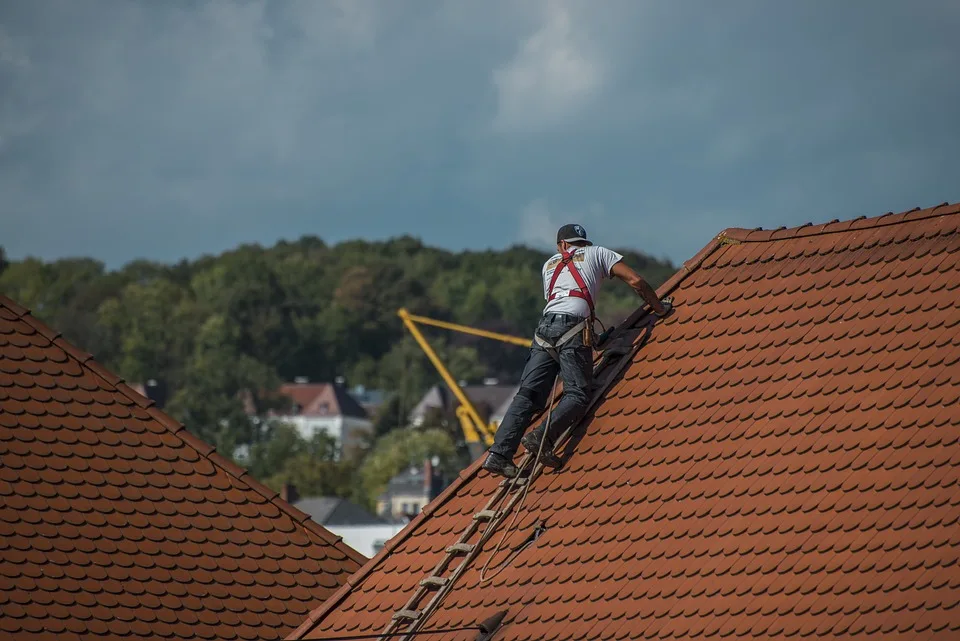Maintaining your roof is one of the most critical aspects of homeownership, as it provides essential protection from the elements. However, even the most durable roofs can suffer from damage, wear, and tear over time. When problems arise, homeowners are often faced with the tough decision of choosing between roof repair or replacement. Each option has its pros and cons, and the right choice depends on several factors. This guide will help you make an informed decision by evaluating the condition of your roof and considering other important aspects.

Consult a Roofing Professional
When deciding between roof repair or replacement, it’s essential to consult a roofing professional for expert advice. A qualified contractor can provide a thorough inspection of your roof, identifying issues that may not be immediately visible to the untrained eye. This ensures that you’re making an informed decision based on a complete understanding of your roof’s condition. Roofing professionals can also offer estimates for both options, including roof repairs and full replacements, giving you a clearer picture of the costs involved. Additionally, they can recommend the best materials and techniques for your specific climate and roof type, ensuring a longer-lasting solution. By relying on their expertise, you avoid potential pitfalls and costly mistakes, making sure that any repair or replacement work is done correctly and effectively.
Assess the Extent of the Damage
One of the first steps in determining whether to repair or replace your roof is assessing the severity of the damage. Minor issues such as a few missing or cracked shingles can be addressed with a simple repair. On the other hand, widespread damage, especially if it affects the underlying structure or insulation, may require a full replacement. If the damage is localized and confined to a small area, repair can be a cost-effective and sufficient solution. However, if the roof has multiple problem areas or significant leaks, replacement may be necessary to ensure long-term protection.
Consider the Age of Your Roof
The age of your roof is another critical factor in deciding between repair and replacement. Most roofs are designed to last between 20 to 30 years, depending on the materials used. If your roof is nearing the end of its expected lifespan, replacing it may be more practical than repeatedly investing in repairs. Even if the current damage is minor, an older roof is likely to experience more problems shortly, making replacement a more cost-effective solution in the long run. Conversely, if your roof is relatively new and still within its warranty period, repairs are likely the better option.
Analyze the Cost of Repairs vs. Replacement
Cost is often the deciding factor when choosing between roof repair or replacement. Roof repairs are typically less expensive than full replacements. However, frequent repairs can add up over time, and if you find yourself constantly addressing new issues, the total cost may eventually exceed the price of a replacement. When calculating costs, consider the long-term benefits of each option. While a replacement may seem more expensive upfront, it can save you money in the long term by eliminating the need for constant repairs. Additionally, a new roof can increase the overall value of your home and improve energy efficiency, reducing utility costs.
Evaluate the Condition of Roofing Materials
Different roofing materials have varying lifespans and wear patterns, which play a crucial role in deciding between repair or replacement. For example, asphalt shingles may last 20-25 years, while metal roofs can endure for up to 50 years or more. If you have a high-quality material that is still within its expected lifespan, repairing isolated issues may be sufficient. However, if the materials have deteriorated significantly or are no longer available, replacement might be necessary. Additionally, some older materials may not meet current building codes or energy standards, making replacement a wise choice to bring your home up to modern regulations.
Inspect the Underlying Roof Structure
Another factor to consider is the condition of the underlying roof structure. If damage extends beyond the visible surface and affects the decking, insulation, or framing, a repair may not be enough to fix the problem. Water infiltration, mold, or structural damage can compromise the integrity of your roof and the safety of your home. In such cases, a full roof replacement is often the most viable solution. A thorough inspection by a roofing professional can help determine whether the underlying structure is still in good condition or if a replacement is necessary to address deeper issues.
Take Climate and Weather Into Account
The climate in your region should also be considered when making this decision. In areas with harsh weather conditions, such as heavy rain, snow, or high winds, a roof that is already showing signs of wear may not withstand future storms. A repair might provide a temporary fix, but a full replacement could offer better protection in the long term. Additionally, newer roofing materials are often more resistant to extreme weather and offer better insulation, which can improve your home’s energy efficiency. If you live in an area prone to severe weather, investing in a new, more durable roof could save you from costly repairs down the road.

Choosing between roof repair and replacement is a significant decision that requires careful consideration of multiple factors. By assessing the extent of the damage, considering the age and condition of your roof, evaluating costs, and consulting with a professional, you can make an informed choice that protects your home and suits your financial situation. Whether you opt for a quick repair or a full replacement, maintaining the integrity of your roof is essential to ensure the long-term safety and comfort of your home.

Jessi is the creative mind behind The Coffee Mom, a popular blog that combines parenting advice, travel tips, and a love for all things Disney. As a trusted Disney influencer and passionate storyteller, Jessi’s authentic insights and relatable content resonate with readers worldwide.
